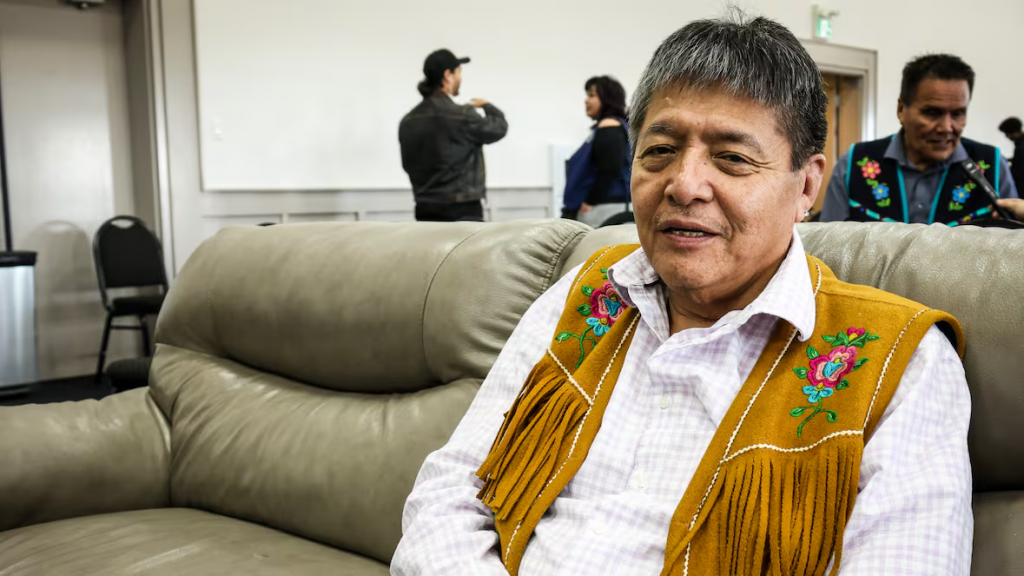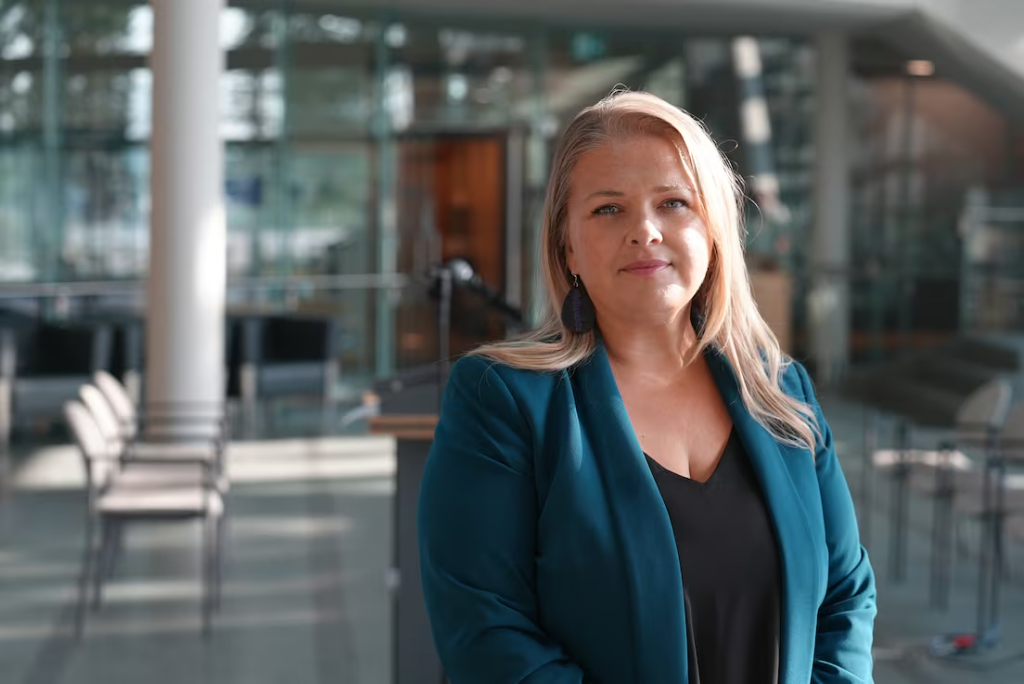Dene National Chief calls on N.W..T. government to prioritize Indigenous hires

By Devon Tredinnick
Statement comes in response to territory reinstating its nominee program
Dene National Chief George Mackenzie is calling for the N.W.T. government to prioritize hiring more Indigenous workers after the territory reinstated its nominee program.
The nominee program helps immigrants move to the territory to work for local employers and provides a path to immigration. Employers have said the program helps fill labour gaps as businesses across the territory decry staffing shortages.
Earlier this month, and after facing cuts to the program, the territorial government announced its annual allotment had finally been restored to the original number.
In a public statement last week, Mackenzie called for promoting Dene workers and more resources to support Dene employment.
Mackenzie’s statement also argues the nominee program overlooks barriers Dene candidates face in getting hired. He called for a “careful examination” of the program’s effect on Dene employment opportunities.
“Our people have the skill, knowledge, and ambitions to fill these positions, but they are being overlooked by companies who are prioritizing cheap labour over investing in local people and communities. This hurts everyone,” Mackenzie said in the statement.
The statement says the Dene Nation “recognizes and celebrates the diversity that enriches our land,” and noted “the many contributions of newcomers to our territories.
“However, a responsible balance must be achieved so that Dene citizens, especially our youth can access meaningful employment opportunities.”
Speaking to CBC News earlier this month, Mackenzie said he’s not alone in his concerns.
He said he’s spoken to about four other chiefs who are also critical of the program, but would not say who. He added that a formal announcement could come soon.
Asked about his concerns, Mackenzie, who lives in Behchokǫ̀, said he can recall a time where Indigenous youth would work at a local gas station. Now they don’t, he said.
“It’s all foreign people working. Where are our young people?” he said.
Much like how mines in the N.W.T. have agreements to prioritize Indigenous hiring, Mackenzie said he’d like to see the same for small businesses.
“The Dene world of [the] N.W.T., the Métis, the Inuvialuit, they must be given priorities,” said Mackenzie. “But this policy doesn’t seem to make it look like that, so the territory has to smarten up and change.”

CBC News asked to speak with Caitlin Cleveland, the minister responsible for immigration. In an email sent back by her office, a spokesperson said she was not available.
They instead provided a statement on her behalf. It points out that the nominee program hasn’t actually expanded, but instead had its original allotment reinstated.
The statement also says the nominee program helps fill ongoing labour shortages in critical sectors like health care, child care and hospitality.
“It does not replace local hiring; it complements it. Employers must advertise locally first, and most applicants to the program have already lived and worked in the N.W.T. for a year or more,” Cleveland’s statement reads.
The statement thanks Mackenzie for sharing his concerns and says that the territory is committed to working with the Dene Nation.
Related stories from around the North:
Canada: N.W.T. could lose hundreds of jobs and residents when the mines close, economist warns, CBC News
Russia: Moscow plans extractive industry boom and thousands of jobs for Arctic town of Dikson, The Independent Barents Observer



